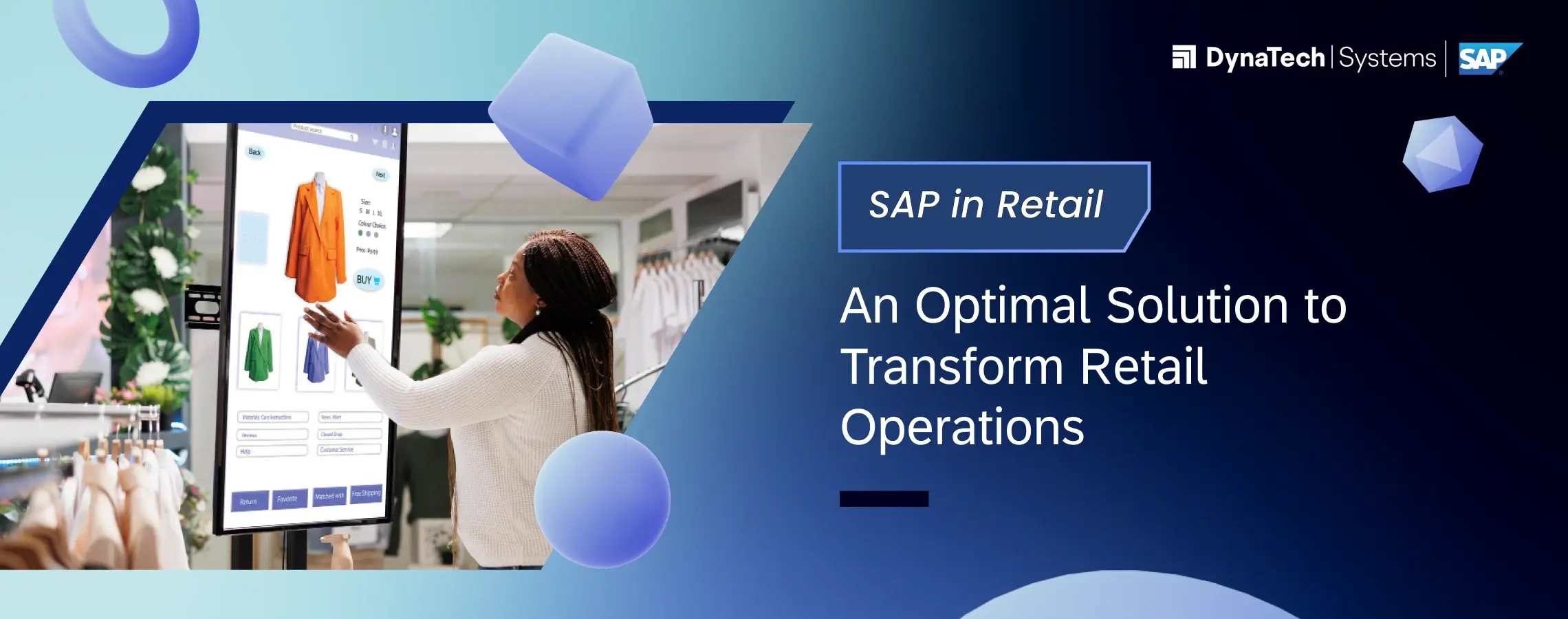Retailers often struggle to manage operational data and other processes seamlessly, which leads them to face unwanted results. But how can they manage to level up their businesses without having to spend much time and effort, and achieve greater heights? The ideal solution is SAP Consulting Services for the retail industry.
But how does it work, and why should retailers opt for SAP retail solutions?
Let's guide you to optimize your retail operations to the fullest and expand your landscape in the marketplace. Give this blog a thorough read to understand the topic and gain maximum advantage of SAP retail business solutions.
How Can SAP Managed Services Improve Retail Business Operations?
- Streamlined Supply Chain Management
SAP Retail optimizes supply chain operations by providing real-time inventory tracking, which ensures that retailers can accurately monitor stock levels. This real-time visibility helps reduce excess inventory and minimize stockouts, leading to a more balanced and efficient inventory management system. The ability to forecast demand accurately using advanced analytics tools enables retailers to plan stock better, resulting in fewer disruptions. Additionally, SAP Retail integrates order fulfillment processes, making deliveries faster and more reliable, which helps improve customer satisfaction and reduces operational costs.
- Enhanced Customer Experience
SAP for the retail industry takes customer experience to another level by optimizing data to make shopping feel personal. Retailers can optimize SAP by sending offers, promotions, and product recommendations based on what customers have bought before or what they like. This personalization helps form a stronger connection, which leads to a more loyal customer base. SAP also makes sure that whether customers are shopping in-store, online, or on their mobile devices, their experience is consistent across all platforms. Also, it makes handling customer service easier, from inquiries to returns and complaints, which ultimately boosts customer satisfaction and keeps people coming back.
- Efficient Merchandising and Pricing
SAP Retail helps retailers with the tools to regulate pricing and product offerings rapidly on the basis of what's happening in the market. It allows them to modify prices in response to things like demand shifts, competitor prices, and seasonal trends. This flexibility helps keep rates competitive and profit margins intact. The system also makes sure that stores stock the right products at the right time by helping with product assortments and store layouts. In addition, SAP Retail manages the entire lifecycle of a product, from when it's first introduced to when it's eventually phased out, which makes the whole process complicated and more profitable for retailers.
- Real-Time Analytics and Reporting
SAP Retail offers retailers the ability to tap into real-time performance data, which enables them to make shrewd moves on the fly. By examining imperative metrics like sales trends, inventory levels, and customer preferences, retailers can rapidly adapt their strategies as required. The SAP retail platform also provides a close look at profitability, even at the product level, so retailers can spot which items aren't performing up to the mark and alter their offerings in that accordance. With this kind of insight, retailers can refine their inventory, pricing, and marketing strategies to drive better business results.
- Automation and Efficiency Gains
SAP Retail allows retailers to rationalize their entire workflow by automating time-consuming tasks such as order processing, invoicing, and stock replenishment. This minimizes the chances for manual work, speeds things up, and reduces the room for errors. By cutting out repetitive tasks, employees can emphasize higher-value activities such as helping customers or developing business strategies. SAP also guides retailers in managing staff by anticipating how many employees are required on the basis of sales and customer traffic patterns. This results in more innovative scheduling, lower labor costs, and amplifies overall efficiency.
- Compliance and Risk Management
SAP Retail allows retailers to stay compliant with essential regulations, like tax laws and safety standards, so they can stay away from heavy fines and legal headaches. The platform also helps recognize and manage risks, whether it's supply chain disruptions, potential security threats, or financial setbacks, which makes it quite simple to react instantly and safeguard businesses' goodwill.
Streamline Your Retail Business with Managed SAP Services
SAP Implementation Services
for the retail industry offers you an extensive solution to amplify all areas of your SAP retail operations. It optimizes inventory and supply chain management, which helps you ensure that products are available when required and minimizes wastage. The platform also boosts customer engagement, helping you provide tailored experiences that build loyalty. By driving efficiency and lowering costs through automation and better resource management, SAP Retail enables you to operate trouble-free. With real-time data and advanced analytics, it supports sound decision-making, which allows you to adapt seamlessly to market changes and ultimately improve profitability.
.png)






